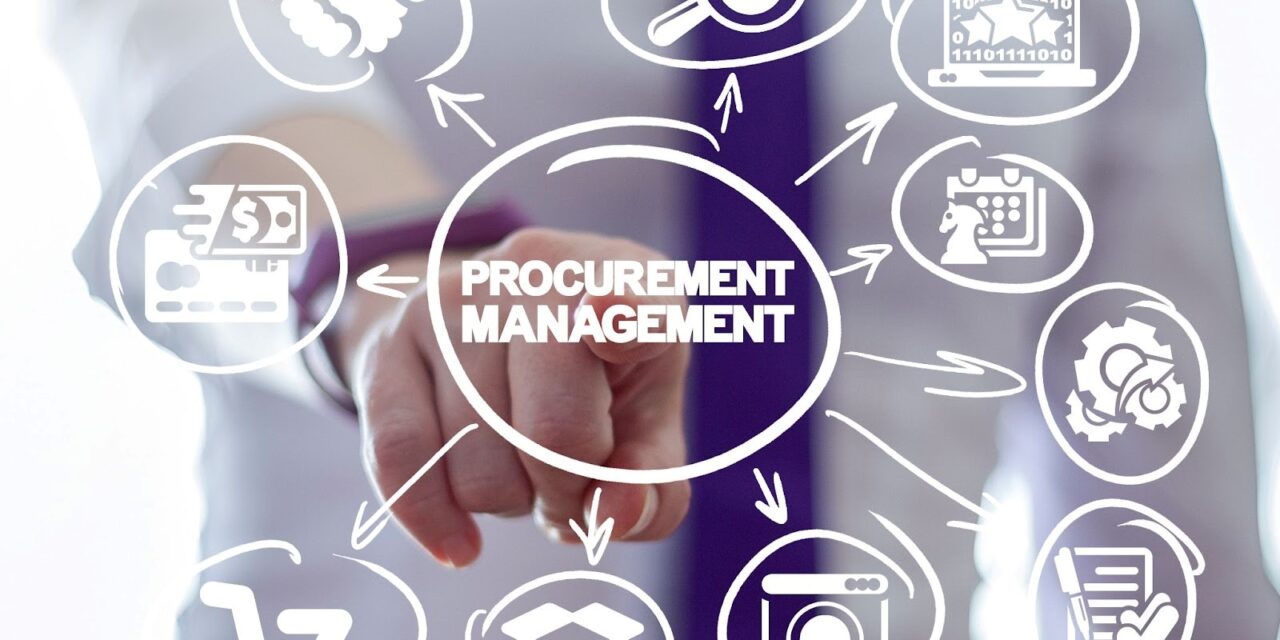- Procurement as a Compliance Driver: Thorough vendor due diligence is essential, encompassing financial stability, adherence to labor laws, environmental practices, and ethical conduct. Proactively including compliance requirements in contracts ensures clarity, with regular audits facilitating continuous improvement and maintaining a compliant supply chain.
- Holistic Integration for Sustainable Practices: Technology integration streamlines procurement processes, offering real-time compliance monitoring and enhancing overall operational efficiency. Collaboration with legal and compliance teams, ongoing training, and comprehensive risk management contribute to a socially responsible and ethically sound procurement framework.
In today’s dynamic business environment, compliance is not just a legal checkbox but a strategic necessity for organizations aiming at sustainable growth. Amidst the myriad strategies employed to meet compliance standards, the role of procurement often remains underexplored. This blog delves deep into the ways organizations can harness the power of procurement to not only meet but exceed compliance expectations.
The Intersection of Procurement and Compliance
Procurement, the process of acquiring goods and services, intersects with compliance on multiple fronts, including legal regulations, ethical standards, and corporate governance. Aligning procurement practices with compliance objectives can establish a symbiotic relationship that fosters transparency, accountability, and integrity, contributing to the overall success and reputation of the organization.
1. Vendor Due Diligence
At the forefront of effective procurement lies comprehensive vendor due diligence. Ensuring that potential suppliers align with legal and ethical standards is paramount. Procurement teams need to conduct exhaustive assessments, evaluating factors such as financial stability, adherence to labor laws, environmental practices, and overall ethical conduct. This meticulous approach mitigates risks associated with non-compliant suppliers, safeguarding the organization from legal repercussions and reputational damage.
– Financial Stability Assessment: Before engaging with suppliers, organizations need to conduct a thorough evaluation of their financial stability. This involves analyzing the supplier’s financial health, assessing their creditworthiness, and ensuring they have the capacity to meet contractual obligations. Financial instability could pose risks to the organization’s supply chain and overall operations.
– Adherence to Labor Laws: Ensuring that suppliers comply with labor laws is essential for ethical procurement. This involves assessing working conditions, fair wages, and adherence to labor regulations. Non-compliance in this area can lead to legal issues, reputational damage, and ethical concerns.
– Environmental Practices: As environmental sustainability becomes increasingly important, evaluating suppliers’ environmental practices is crucial. Organizations should assess suppliers’ efforts to minimize their environmental impact, reduce carbon footprint, and adhere to relevant environmental regulations.
– Ethical Conduct Examination: Scrutinizing the overall ethical conduct of potential suppliers is essential. This involves investigating any history of unethical business practices, conflicts of interest, or legal issues. Ethical conduct aligns with an organization’s values and ensures that suppliers operate with integrity.
2. Contractual Compliance
Contracts form the backbone of procurement, delineating the terms and conditions under which goods and services are acquired. Proactively embedding compliance requirements within contracts ensures all parties involved adhere to regulatory and ethical standards. Contracts should explicitly outline compliance expectations, covering aspects like data protection measures, environmental commitments, and adherence to industry-specific regulations. Regular audits of contracts are imperative, allowing for the identification and rectification of any deviations from established compliance standards.
– Clear Definition of Compliance Expectations: Contracts should explicitly outline compliance expectations, leaving no room for ambiguity. This includes specifying data protection measures, environmental commitments, and adherence to industry-specific regulations. Clarity in contractual language ensures that all parties involved understand and commit to meeting compliance standards.
– Regular Audits for Deviations: Contractual compliance is an ongoing process. Regular audits should be conducted to assess whether all parties are adhering to the agreed-upon terms. These audits help identify any deviations from compliance standards and allow for prompt corrective actions. They contribute to the continuous improvement of procurement processes and the maintenance of a compliant supply chain.
3. Technology Integration
In the era of digital transformation, technology is an indispensable tool for enhancing the efficiency and effectiveness of procurement processes. Implementing procurement management systems with integrated compliance monitoring tools streamlines the tracking of supplier performance and adherence to contractual obligations. Automation not only reduces the likelihood of human error but also provides real-time insights into compliance status, enabling prompt corrective actions.
4. Sustainable Procurement Practices
Sustainability and compliance are interconnected facets of responsible business conduct. Organizations are increasingly recognizing the importance of sustainable procurement practices to meet environmental, social, and governance (ESG) standards. Integrating sustainability criteria into the procurement process allows organizations to contribute to broader societal goals while ensuring compliance with regulations related to environmental impact, labor practices, and supply chain transparency.
– Streamlining Procurement Processes: Implementing procurement management systems goes beyond mere digitization. This involves streamlining and optimizing the entire procurement lifecycle, from requisition to payment. This integration increases efficiency, reduces manual errors, and enhances the overall effectiveness of procurement operations.
– Real-time Compliance Monitoring: Technology allows for the integration of compliance monitoring tools within procurement systems. Real-time monitoring provides immediate insights into supplier performance and compliance status. This proactive approach enables organizations to address potential issues swiftly, minimizing the impact of non-compliance.
5. Training and Education
A knowledgeable and informed procurement team is instrumental in upholding compliance standards. Providing ongoing training and education on relevant laws, regulations, and ethical considerations empowers procurement professionals to make informed decisions. This includes understanding the implications of non-compliance, staying abreast of regulatory changes, and fostering a culture of compliance throughout the organization.
6. Continuous Monitoring and Auditing
Compliance is an ongoing effort; it requires continuous monitoring and auditing to identify and address potential risks and deviations. Regular audits of procurement processes, supplier activities, and contract adherence are essential to uncover areas of improvement and ensure the organization remains in compliance with evolving regulations. Continuous monitoring facilitates early detection of potential issues, allowing for timely corrective actions.
7. Collaboration with Legal and Compliance Teams
Effective collaboration between procurement, legal, and compliance teams is fundamental for a holistic approach to compliance management. Procurement professionals should work closely with legal and compliance experts to align procurement strategies with overarching organizational compliance goals. This collaboration ensures that procurement practices are not only legally sound but also in harmony with the organization’s broader ethical and compliance framework.
– Aligning Procurement Strategies: Collaboration between procurement, legal, and compliance teams is vital for ensuring that procurement strategies align seamlessly with organizational compliance goals. This involves ongoing communication, sharing insights, and collectively developing strategies that meet both legal and ethical standards.
– Ethical Considerations: Beyond legal compliance, collaboration with legal and compliance teams ensures that procurement practices align with broader ethical considerations. This involves assessing the impact of procurement decisions on stakeholders, communities, and the environment. It contributes to the establishment of a socially responsible and ethically sound procurement framework.
8. Risk Management
Procurement inherently involves risk, and managing these risks is integral to compliance. Organizations should conduct comprehensive risk assessments within their procurement processes, identifying potential areas of vulnerability. This includes evaluating the geopolitical landscape, economic factors, and industry-specific challenges. Developing a comprehensive risk management strategy enables organizations to proactively address potential compliance issues before they escalate.
– Empowering Procurement Professionals: Continuous training and education empower procurement professionals to navigate the evolving landscape of laws, regulations, and ethical considerations. This ongoing education ensures that the procurement team remains well-informed and capable of making decisions that align with compliance objectives.
– Comprehensive Risk Management: Risk assessments within procurement processes involve evaluating a spectrum of potential risks, including geopolitical factors, economic challenges, and industry-specific issues. A comprehensive risk management strategy enables organizations to anticipate and mitigate risks, ensuring a resilient and compliant procurement environment.
The Intersection of Procurement and Compliance:
Procurement, the process of acquiring goods and services, intersects with compliance on multiple fronts, including legal regulations, ethical standards, and corporate governance. Aligning procurement practices with compliance objectives can establish a symbiotic relationship that fosters transparency, accountability, and integrity, contributing to the overall success and reputation of the organization.
In today’s dynamic business environment, compliance is not just a legal checkbox but a strategic necessity for organizations aiming at sustainable growth. Amidst the myriad strategies employed to meet compliance standards, the role of procurement often remains underexplored. This blog delves deep into the ways organizations can harness the power of procurement to not only meet but exceed compliance expectations.
Conclusion
In the dynamic tapestry of contemporary business, the fusion of procurement and compliance emerges as a transformative force, propelling organizations beyond mere regulatory conformity towards a future of ethical excellence and sustainable success. Procurement’s pivotal role as a compliance driver spans the spectrum from meticulous vendor due diligence to the proactive inclusion of compliance measures in contracts, thereby fortifying the foundations of a robust and resilient supply chain.
Holistic integration, facilitated by cutting-edge technology and collaborative synergies, propels procurement into a realm where sustainability and ethics seamlessly intertwine with operational efficiency. Technology, extending beyond mere digitization, becomes a cornerstone in amplifying the impact of procurement on compliance. The integration of procurement management systems not only streamlines operations but becomes a catalyst for efficiency throughout the procurement lifecycle. Real-time compliance monitoring tools, seamlessly woven into procurement systems, offer organizations a proactive stance in addressing potential compliance issues promptly. This integration not only fortifies the compliance infrastructure but also positions organizations at the forefront of leveraging technology for sustainable and ethical business practices.
Collaboration, a linchpin in the pursuit of compliance excellence, emerges as a dynamic force. The harmonious synergy between procurement, legal, and compliance teams ensures that strategies align seamlessly with overarching organizational compliance goals. This collaborative approach, rooted in ongoing communication and shared insights, extends beyond legalities to encompass broader ethical considerations. By evaluating the impact of procurement decisions on stakeholders, communities, and the environment, organizations transcend mere compliance, embodying a socially responsible and ethically sound procurement ethos.
As organizations navigate the uncharted territories of the future, the alliance of procurement and compliance stands as a guiding beacon. This partnership not only ensures strict adherence to legal mandates but positions businesses as frontrunners in championing responsible, ethical, and compliant practices. It not only fortifies the operational foundations of an organization but also becomes a catalyst for positive corporate impact. In this evolving landscape, where responsible business practices are not just expected but demanded, the amalgamation of procurement and compliance becomes the cornerstone for businesses striving for sustained success and positive societal contributions.












